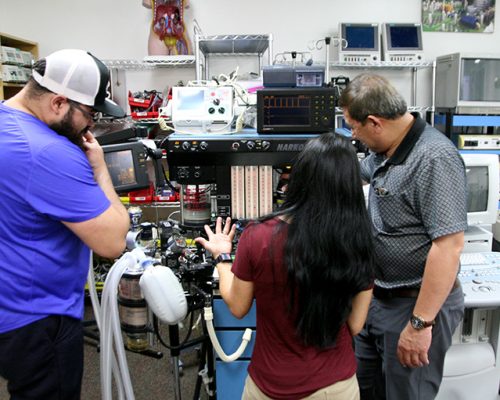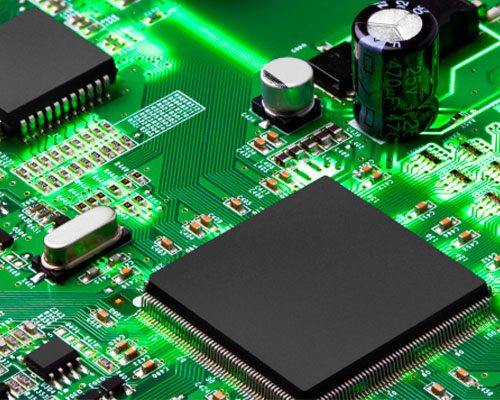Advancements in neonatal technology are reshaping the way care is delivered in the Neonatal Intensive Care Unit (NICU). Integrated NICU systems represent one of the most significant shifts in modern neonatal care, bringing together various pieces of equipment into a cohesive network. By enabling seamless coordination among devices, these systems aim to streamline the monitoring, support, and overall management of neonatal care. This integration not only improves operational efficiency but also elevates the quality of care provided to premature and critically ill infants. Dive into the key benefits of integrated NICU systems and the ways they are revolutionizing neonatal care in this post from the International Biomedical blog.
Improved Workflow and Efficiency
One of the primary benefits of integrated NICU systems is the improvement in workflow and efficiency for healthcare providers. In a traditional NICU setup, different devices operate independently, requiring staff to manually collect and interpret data from multiple sources. Integrated systems link together incubators, ventilators, monitoring devices, and other critical equipment, allowing healthcare professionals to access all relevant information from a single platform. This reduces the time spent on manual data entry and helps staff make faster, more informed decisions.
International Biomedical’s integrated solutions aim to streamline these processes by connecting their various devices, such as ventilators, transport incubators, and monitoring systems, into a cohesive unit. This level of integration helps healthcare teams focus more on patient care rather than managing multiple disparate systems.
Enhanced Monitoring and Data Accuracy
Accurate monitoring is essential in the NICU, where even small changes in an infant’s condition can have significant implications. Integrated NICU systems improve data accuracy by eliminating inconsistencies that can arise when transferring information between separate devices. All equipment communicates directly with one another, providing real-time updates that are automatically recorded and displayed on a centralized platform.
For example, when non-invasive monitoring devices are connected with ventilators and incubators, healthcare teams receive a complete picture of the infant’s respiratory status, vital signs, and overall condition. This integrated approach helps minimize errors and provides a comprehensive, up-to-date understanding of the infant’s health, enabling timely interventions when necessary.
Reduced Risk of Human Error
Integrated NICU systems also help reduce the risk of human error, which is critical in the care of premature and critically ill infants. With multiple devices working independently, there is always the potential for discrepancies in settings or delays in recognizing changes in a baby’s condition. Integrated systems automate much of the data collection process, ensuring that information from different devices is aligned and consistent. This reduces the reliance on manual input, helping to prevent potential errors that could compromise patient safety.
Customizable Care Settings
Every infant in the NICU has unique needs, and integrated systems allow healthcare teams to customize care settings based on individual requirements. By connecting devices like ventilators, incubators, and monitoring tools, integrated NICU systems make it easier to adjust parameters across multiple devices simultaneously. For example, if a change in respiratory support is needed, integrated systems can automatically adjust oxygen delivery, ventilator settings, and incubator conditions to maintain an optimal environment.
International Biomedical’s customizable NICU solutions are designed to work in harmony, allowing healthcare providers to create individualized care plans that can be adjusted seamlessly as the infant’s condition changes. This level of customization is crucial for optimizing outcomes and supporting each infant’s growth and recovery.
Better Communication Among Care Teams
Effective communication is at the core of quality neonatal care. Integrated NICU systems facilitate better communication among care teams by providing a single source of truth for all patient data. Instead of relying on disparate devices and manual updates, healthcare professionals can access a unified interface that shows all relevant information in real-time. This ensures that all members of the care team are on the same page, reducing the risk of miscommunication and improving coordination during critical moments.
Supporting Family-Centered Care
Integrated NICU systems not only benefit healthcare providers but also support family-centered care. By reducing the number of wires and simplifying the monitoring process, integrated systems create a less intimidating environment for families. Parents are often encouraged to participate in their infant’s care through activities like skin-to-skin contact (kangaroo care), and integrated systems make it easier for these interactions to take place without disrupting the medical equipment. Additionally, families can be provided with more consistent updates on their infant’s condition, giving them greater peace of mind during what is often a stressful time.
Data-Driven Decision Making
The data generated by integrated NICU systems is invaluable for making informed, data-driven decisions. By bringing together information from multiple devices, these systems create a comprehensive dataset that healthcare providers can use to evaluate trends, predict potential issues, and adjust care accordingly. The ability to analyze data from a range of sources helps healthcare teams identify areas for improvement and implement evidence-based interventions that can improve outcomes for infants in the NICU.
Transforming Neonatal Care Through Integration at International Biomedical
Integrated NICU systems are transforming neonatal care by improving efficiency, reducing errors, and enhancing the quality of care provided to premature and critically ill infants. By bringing together multiple devices into a cohesive and coordinated system, integrated NICU solutions help healthcare teams focus on what matters most: providing the best possible care for their patients. International Biomedical is at the forefront of this transformation, developing integrated systems that prioritize precision, safety, and adaptability to meet the unique needs of infants and healthcare teams alike.
To learn more about the benefits of integrated NICU systems and how International Biomedical is helping to advance neonatal care, browse our website or contact us for more information.









